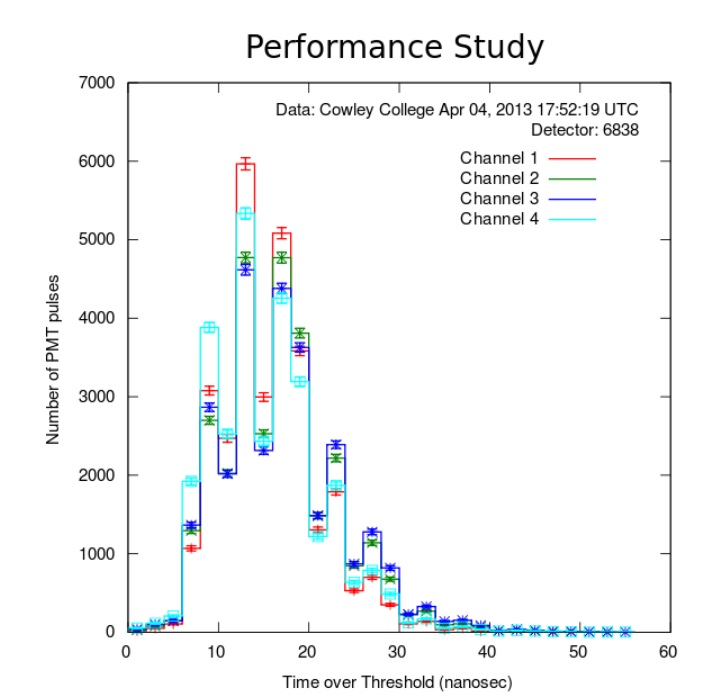Friday Flyer on Monday - April 30, 2018

Spotlight on the Cosmic Ray e-Lab
Looking for a project for your students to tackle after the AP or IB test? Have a student who is interested in doing an independent study project with you? Why not try using the Cosmic Ray e-Lab! This e-Lab works whether you have a cosmic ray detector or not, and it gives you and your students a chance to analyze data from cosmic particles from supernovae using high-energy physics detectors. Students develop experiments and can measure a variety of parameters, include muon flux, muon lifetime, speed of muons, and distributions in space and time of showers of multiple muons. Contact Mark, Ken, or Shane if you have questions, or if you would like to open an e-Lab account.


News from QuarkNet Central
Is your cosmic ray detector in need of some repair? Now is the time to get your detector up and running in good working order for summer workshops. Contact Dave Hoppert to get the repair process going.
Our QuarkNet mentors have done a great job of informing us of their summer plans (thanks!), and we should be able to send funding letters soon. There are still details to fill in, especially since not every center has nailed down its summer dates. Please send those details to Shane or Ken when they become available.

Physics Experiment Roundup
The SuperKEKB particle accelerator in Japan recently started colliding electrons and positrons, and becomes the lead in the "luminosity frontier." You can read more about the SuperKEKB accelerator and its Belle II detector from symmetry as well. Learn more about the excitement, science, and mysteries of the Deep Underground Neutrino Experiment (DUNE) from this new video.

Resources
Learn more about neutrino oscillations by watching this short video from Minute Physics. Fermilab's Don Lincoln explains one of special relativity's mind-bending consequences in this video about length contraction. The Perimeter Institute will host a free live webcast on May 2, 2018 at 7pm ET on artificial intelligence, addressing the question, "Can computers think?" And finally, symmetry explores the coevolution of physics and math.

Just for Fun
It's that time of the year again: baby bison season at Fermilab!
QuarkNet Staff:
Mark Adams: adams@fnal.gov
Ken Cecire: kcecire@nd.edu
Deborah Roudebush: droudebush@cox.net
Jeremy Smith: jsmith10@bcps.org
Shane Wood: swood5@nd.edu
